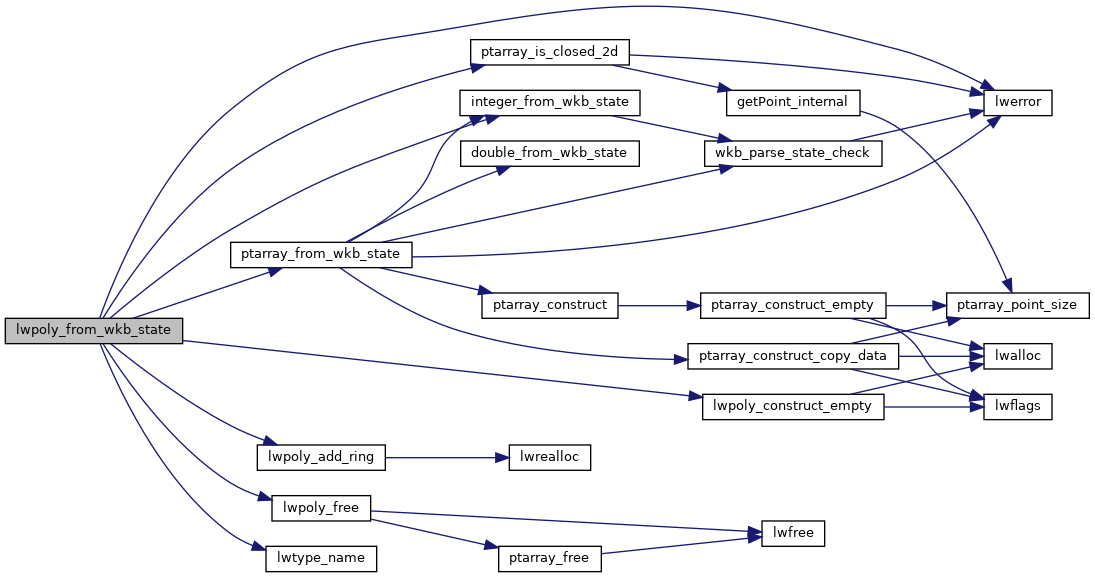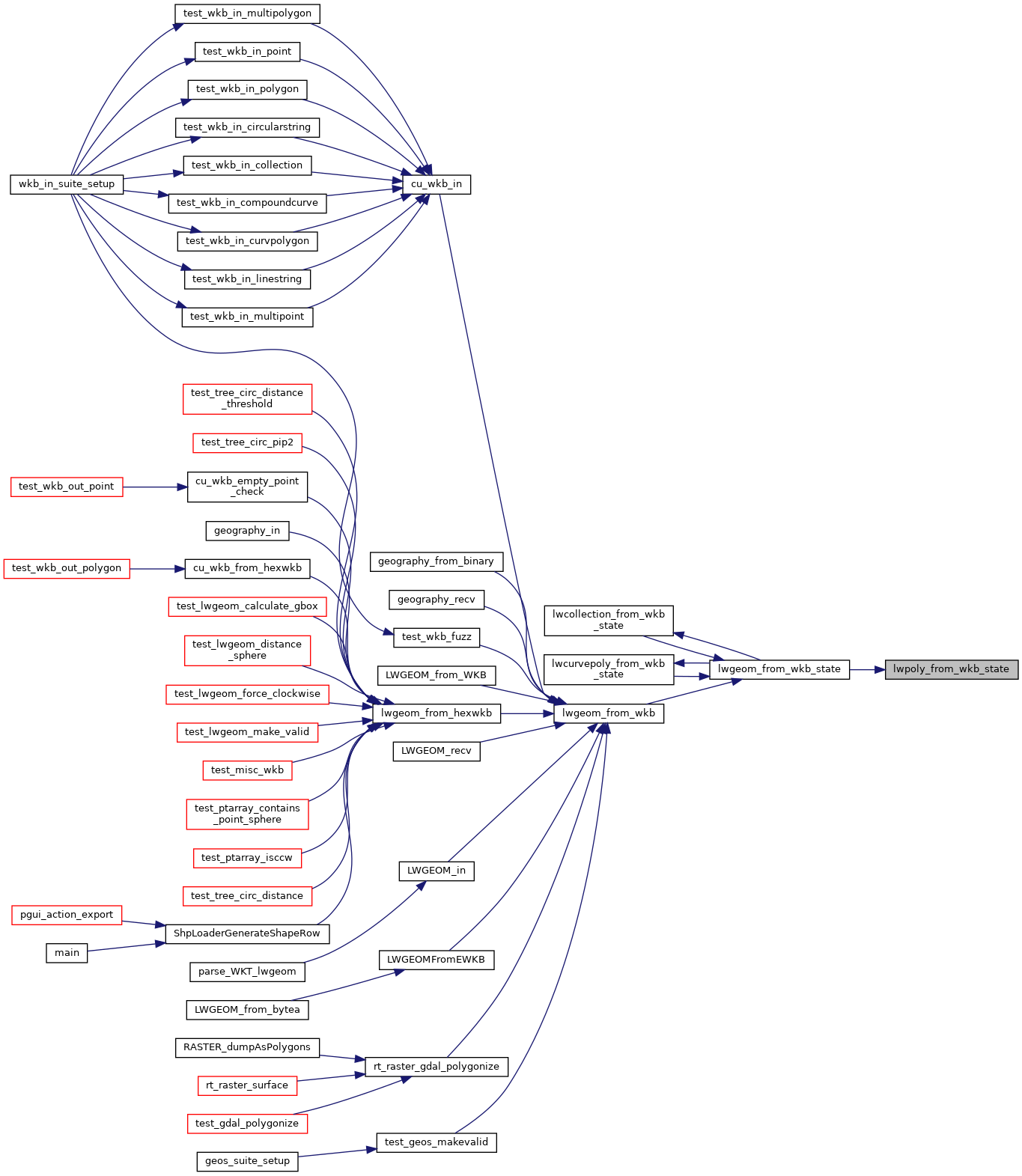◆ lwpoly_from_wkb_state()
|
static |
POLYGON Read a WKB polygon, starting just after the endian byte, type number and optional srid number.
Advance the parse state forward appropriately. First read the number of rings, then read each ring (which are structured as point arrays)
Definition at line 529 of file lwin_wkb.c.
int lwpoly_add_ring(LWPOLY *poly, POINTARRAY *pa)
Add a ring, allocating extra space if necessary.
Definition: lwpoly.c:247
const char * lwtype_name(uint8_t type)
Return the type name string associated with a type number (e.g.
Definition: lwutil.c:216
LWPOLY * lwpoly_construct_empty(int32_t srid, char hasz, char hasm)
Definition: lwpoly.c:161
static uint32_t integer_from_wkb_state(wkb_parse_state *s)
Int32 Read 4-byte integer and advance the parse state forward.
Definition: lwin_wkb.c:278
static POINTARRAY * ptarray_from_wkb_state(wkb_parse_state *s)
POINTARRAY Read a dynamically sized point array and advance the parse state forward.
Definition: lwin_wkb.c:340
Definition: liblwgeom.h:503
Definition: liblwgeom.h:412
References integer_from_wkb_state(), LW_FAILURE, LW_PARSER_CHECK_CLOSURE, LW_PARSER_CHECK_MINPOINTS, LWDEBUG, LWDEBUGF, lwerror(), lwpoly_add_ring(), lwpoly_construct_empty(), lwpoly_free(), lwtype_name(), POINTARRAY::npoints, ptarray_from_wkb_state(), ptarray_is_closed_2d(), and s.
Referenced by lwgeom_from_wkb_state().
Here is the call graph for this function:

Here is the caller graph for this function:
